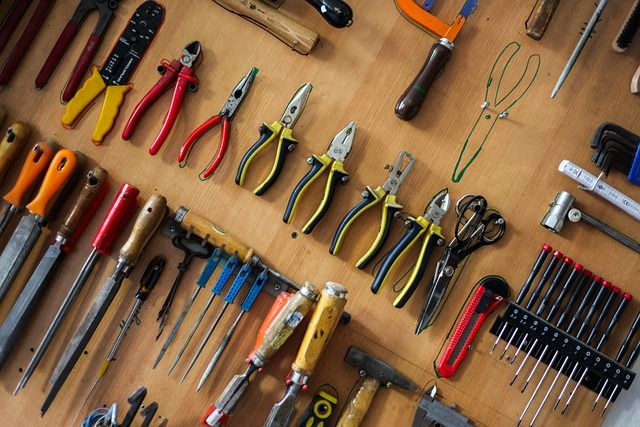Rules of the tools
Follow these simple rules and you will maximize your enjoyment of fixing things yourself - and avoid unpleasant experiences.

Before you start
There are a couple of rules I live by when it comes to tools. They've served me well over the years, and when I didn't follow them, the results were generally negative. I encourage you to use these same rules to maximize your enjoyment of fixing things yourself.
Safety first
Before starting a project that involves hammering, drilling, or sanding, always use the proper personal protection equipment. Eye protection is a must for nearly any project. Face masts are advisable if you are doing a lot of sanding. Simply smoothing out a small area is probably okay. But, with plenty of covid masks about, why risk inhaling dust you don't have to?
Buy quality and buy once
It isn't often I get preachy or take an adamant stand on fixing things (I am sure there are those who know me that might disagree), but tool quality is one of those times. It's tempting to buy a "homeowner" toolkit with everything I've listed and more. Hey, it's convenient, they come with a case, and they might even be available in designer colors. DO NOT buy these kits. To put it bluntly, these tools are crap and will fail at the worst possible time. I speak from experience on this, having purchased received such tools over the years.
Always buy quality. I am talking about Craftsman, Plumb, Estwing, or Kobalt levels. Forged steel, properly tempered, quality handles, warranty, etc. I mentioned that I have the same Craftsman tool set I was gifted at age 16 in the second half of the last century. During this time, I have only needed to replace my small ratchet - and that was covered completely under warranty. People who shall remain nameless have lost items from my set, but that isn't a quality issue.
Four of my favorite online (and in-store) purveyors of quality tools are:
- Garrett Wade - online only
- Lee Valley - online only (except for 20 stores in Canada)
- Woodcraft - online and in-store (select cities)
- Rockler - online and in-store (select cities)
I've also inherited numerous tools from my Dad and grand and great-grandfathers. These are still fully functional, although I tend to keep them on display rather than wear them out.
Never use a tool for a purpose it is not intended to fulfill
This may sound obvious, but it bears repeating, tools are designed for a specific purpose. Hammers for driving in nails. Screwdrivers for seating screws. For example, using a screwdriver to pound a nail is a no-no. It can damage the tool and worse, cause injury to the user.
Always put your tools back where they belong
Nothing is more aggravating, at least in the realm of fixing stuff, than to go for a tool and discover it is not where it should be. Foul language has been heard in my household upon such a discovery.
It is so easy to just go ahead and put the tool back in its drawer, in the bucket, or on the pegboard. It is really an inexcusable breach of tool etiquette to leave a tool where it doesn't belong. Hum, guess I got preachy again. That's two for this piece.
Train yourself and your family members to put it back! When you find a tool missing or out of place make a point to nicely show the responsible individual the proper place to keep them. Repeat as necessary or proceed with the following solution.
Recidivist tool leaver-outers may need to have their own tools to misplace. When my son and daughter were old enough, I gave them both a set of basic hand tools and taught them how to use them. I did the same for my first grandson and will for my second.
The benefits of tool gifting and ownership are numerous. You learn a bit of self-sufficiency and responsibility. If a tool is lost, the owner must replace it out of their pocket, not raid your stash.
Should a tool be left exposed to the elements and you find it rusted...time for a lesson in tool maintenance. If it is recoverable, have the culprit clean it and get it back to like-new condition.

Never loan your tools to anyone - ever
A good way to lose a tool and a friend is to loan the former to the latter. No one respects your tools more than you do. Loaning one out is a recipe for never getting it back. If it is broken or gets lost, that's another issue. Just don't. Instead, lend yourself with your tools. It's more fun and there might be beer and food involved.
The converse of this maxim is equally true, never borrow a tool from someone. Instead, take the opportunity to 1) buy the tool and grow your arsenal or 2) lure the tool owner over with promises of food and drink in exchange for their help with your project.
There, not so many rules. And, I only got up on my soapbox twice. Next, let's build your tool kit and acquire the raw materials many projects will require.
